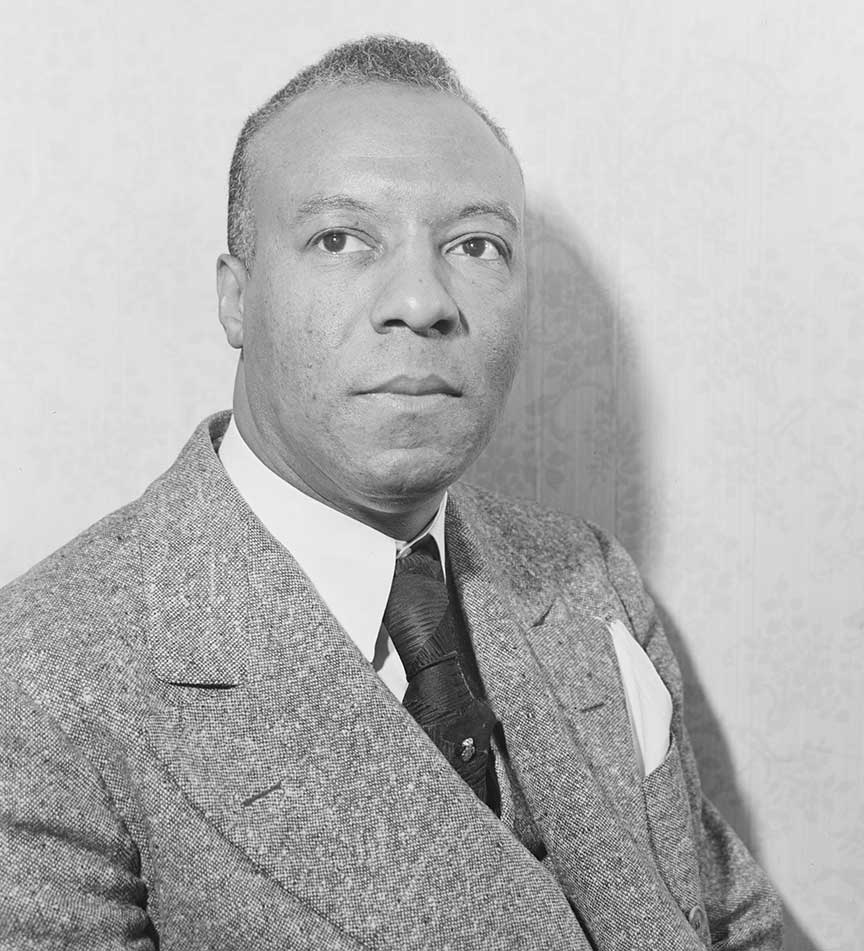1925 Brotherhood of Rail Porters

A. Philip Randolph
In 1925, A. Philip Randolph organized the brotherhood of Sleeping Car Porters. It was the first Black labor union.
In 1925, the Brotherhood of Sleeping Car Porters (BSCP)was organized by A. Philip Randolph. This union became the first Black labor union to be chartered under the American Federation of Labor (AFL). The establishment of the BSCP not only marked a pivotal moment in the labor movement but also played a crucial role in advancing the cause of racial equality in America.
A. Philip Randolph, a dedicated and charismatic leader, was born on April 15, 1889, in Crescent City, Florida. He moved to New York City, where he became a prominent voice in the socialist movement and an advocate for the rights of African Americans. Randolph recognized the potential power of organized labor to improve the socio-economic conditions of Black workers, who were often relegated to low-paying and menial jobs with little job security or prospects for advancement.
The Pullman Company, the largest employer of Black men at the time, hired African Americans almost exclusively as porters on its luxury sleeping cars. These jobs, while offering some of the best employment opportunities available to Black men, came with significant hardships. Porters worked long hours for low pay, faced constant discrimination and disrespect from passengers and management, and had no job security. Despite these challenges, they were expected to provide impeccable service, often at the expense of their own dignity.
Randolph saw the potential for the porters to organize and fight for better working conditions. However, the task was daunting. The Pullman Company was vehemently opposed to unionization and used various tactics to suppress any efforts by the porters to organize. They employed spies to infiltrate meetings, threatened and fired workers who were suspected of union activities, and spread fear and misinformation among the porters. Despite these obstacles, Randolph persisted in his efforts to organize the porters.
In 1925, Randolph and a group of dedicated porters formally established the Brotherhood of Sleeping Car Porters. The union aimed to secure higher wages, shorter working hours, better working conditions, and respect and dignity for the porters. Randolph’s eloquence and commitment to nonviolent resistance attracted many supporters, but the struggle was far from over. The union faced a protracted battle against the Pullman Company, which continued to resist their efforts through intimidation and legal battles.
For over a decade, the BSCP fought tirelessly to gain recognition and improve the working conditions of the porters. They organized strikes, rallies, and campaigns to raise awareness about the plight of the porters. Randolph’s leadership was instrumental in maintaining the morale and unity of the union members. His strategic approach, which combined grassroots organizing with lobbying and public advocacy, eventually paid off.
In 1937, after years of persistent struggle, the BSCP achieved a significant victory when the Pullman Company agreed to recognize the union and negotiate a contract. This agreement marked the first time a major American corporation recognized a Black labor union. The contract secured substantial wage increases, reduced working hours, and improved working conditions for the porters. It also established a grievance procedure, giving the porters a formal mechanism to address their complaints.
The success of the BSCP had far-reaching implications beyond the immediate benefits secured for the porters. It demonstrated the power of organized labor and set a precedent for future labor movements. It also highlighted the intersection of labor rights and civil rights, showing that the fight for economic justice was inseparable from the fight for racial equality. The BSCP’s victory inspired other Black workers to organize and demand their rights, contributing to the broader struggle for civil rights in the United States.
A. Philip Randolph’s leadership extended beyond the labor movement. He became a prominent civil rights leader and played a crucial role in several key events in American history, including the 1963 March on Washington for Jobs and Freedom, where Martin Luther King Jr. delivered his iconic “I Have a Dream” speech. Randolph’s lifelong commitment to justice and equality left an indelible mark on the civil rights movement and American society.
 >
>